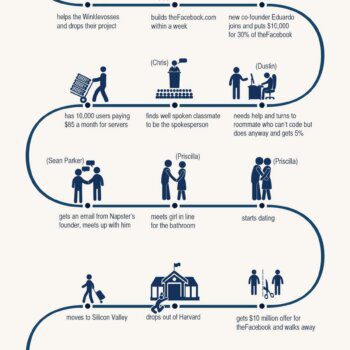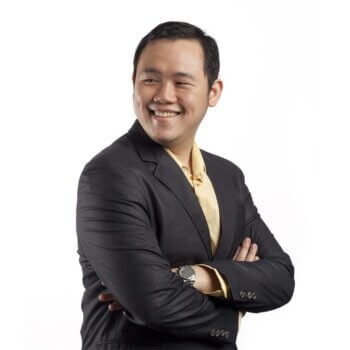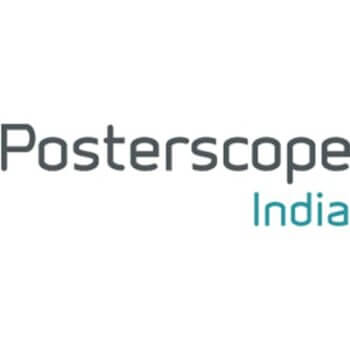(Women on Top in Tech is a series about Women Founders, CEOs, and Leaders in technology. It aims to amplify and bring to the fore diversity in leadership in technology.)
Here is my interview with Lisa Kuhn Phillips, fintech professional and seasoned financial services leader. A ‘Why Not’er + Silo Buster + Pattern Finder ( in math, data, people, behaviors) + 21st c company Culture Transformer. Her career also includes 25+ years in fiscal, strategic and organizational change responsibility. She is Vice President at Allied Payment Network and Founder at inaVision, LLC.
What makes you do what you do?
How did you rise in the industry you are in?
My industry is Financial Services – whether it is in financial institutions or a financial tech startup. I started in the late 80’s when the culture du jour was fairly hierarchal, yet I had the opportunity to be mentored (and more importantly, sponsored) by the CEO of our financial institution. He was the first leader and businessman I met who believed in progressive work, and supporting women in real leadership roles.
I started in accounting, learned the ins and out of service/tactical support work, then on to front end work, leading a lending/management team that was as diverse as they come. I innately knew how to listen, learn and guide others. From there, I was moved to different roles or responsibilities – training, compliance, development, human resources, special projects (community/government charter work), operations (everything under the sun), information technology, finance, marketing, e-services and others… giving me a well-rounded knowledge of operating a business and influencing others.
The strategic intent was to build a team-driven, tech-enabled company culture and agile operation in constant learning mode. This evolution didn’t happen in the last 5 years. It started methodically in the late 90’s, then ramped up in 2004 -2009 as we eliminated a legacy system, focused on information technology as a strategic partner, and utilized ERM as the means of prioritizing work needs and talent allocation. My role was to eliminate unnecessary work (silos) and take a full hands on approach, learning what worked, what didn’t, and as equally important, who did and who didn’t.
I was instrumental in creating a working 21st century business model (I still have the sketched out version from early 2009), complete with plan, actionable items, timelines and key performance measures that were so different it took a year to embed it throughout our company. It was a labor of love, complete with 60-70 hour workweeks and LBWA (leading and listening by walking around).
So when people say smarter, not harder work, I say…no, the smarter work comes through the harder work of getting commitment and buy-in to an idea before it’s time. It also comes from having to make the difficult decisions and having the courage to carry through on them.
Why did you take on this role/start this startup especially since this is perhaps a stretch or challenge for you (or viewed as one since you are not the usual leadership demographics)?
I did not really want to stay “corporate” and move/relocate for an opportunity in my comfort zone. I’d been there, done that – and to recreate in a new place sounded like Groundhog Day to me. Do I try to create again, while disrupting my children and moving them away from their friends and stability? I tried another corporate role – the ingrained culture was definitely not a good fit for my taste.
So I made the conscious decision to stay local for my children and find the right opportunity that made me ‘restart’ and challenge myself. I found it – the first start up allowed me to understand a very stable and growing industry (of all things, death care/airline logistics) and eventually landed into a financial technology startup. Both great learning, unlearning and elearning experiences. Remote work, new skills, involved nationally and internationally, opened my eyes to how interconnected the world truly is.
My take: The US financial services industry is slowly changing, yet not with the sense of urgency needed. Financial Technology gives me that sense of urgency and relevancy. Continual change. Sprints instead of 5 year plan marathons. Smaller teams, with forward vision.
So a few years into my role, some new lessons learned. #1: wisdom is critical, sometimes more important than knowledge alone. It gives you is a sense of calm, instead of worry and restlessness. Lesson #2 in our globally connected world: Networking with others is just as valuable as working on the business. Lesson #3 is most personal to me: Change of any kind means your living, not existing.
Do you have a mentor that you look up to in your industries or did you look for one or how did that work?
Financial Services – not really that many. In my earlier years, James G Mills. He was a visionary CEO who assembled a group of people, very eager to prove their talents, and build a progressive financial cooperative. He taught me how to grow a thicker skin, accept challenges, and view everything from a strategic, long-term perspective. He knew what was most important back before we used buzzwords or acronyms to describe it – the Customer Experience – always purpose first, then reasonable profit. Other than Jim, no one else mentored me in person – the rest came through reading publications, books, and learning on the job what worked and what didn’t.
Through my own study, I’ve had ‘role models’ rather than mentors. Warren Buffett’s annual reports. I trusted his view, humility and overview on business in the 20th c. I followed Altimeter Group early on and like the work of Charlene Li and Brian Solis. Their Social Business Transformation was a great resource. Authors such as John Maxwell, Jim Collins (Good to Great – so fundamental), portions of Clay Christensen. More companies as business models, rather than their leaders.
Then in 2010-11 I started my immersion in mobile/digital Gen C world and lived/worked basically by iPhone, rather than desktop. Connected in the fintech space and found this great, remarkable wealth of individuals, who were (and some still are) my mentors that I observe and learn from daily (many without their knowledge).
Brad Leimer. Chris Skinner. Brett King & Bank 2.0. Sallie Krawcheck, Kelli Schultz, Ghela Boskovich, Duena Blomstrom…From a market/marketing perspective – Bryan Clagett, Jim Marous, and Alex Jimenez. From a company leadership perspective (from afar) Tom Shen. and countless others I admire.
How did you make a match if you and how did you end up being mentored by him?
With James Mills, I was brought in full time after I graduated from college and I knew he would teach me – he mentored me and committed as a sponsor for me. With the others, I’ve asked a few. Other times, I’d just study their work, their communication style and decisions. Understand their perspective, and how it may coincide or differ from mine.
I recommend you reach out to someone you admire, let them know what you need to learn and see if they will assist. The worst they can say is “no, thank you”. Ok, onto the next one. I was on the board for “Mentoring Women’s Network” for awhile. I believe we focus too much on mentoring. Real commitment is in “sponsoring” someone.
Now as a leader how do you spot, develop, keep, grow and support your talent?
Do you consciously or unconsciously support diversity and why?
It is the only way we will grow – as a company, as a team, as a country, as a world. Statistics prove that diverse companies have better results. It’s a no-brainer. So it is maddening to me that diversity is not embraced. My concern is my daughter won’t experience gender equality and diversity in her lifetime.
What is your take on what it takes to be a great leader in your industry and as a general rule of thumb?
Leaders who have passion and compassion; discipline and daring; with drive and self-regulation – they can operate in a world disrupted and adapt on the fly.
Advice for others?
And by all means, you are not a “girl” who codes, a girl Friday or a girl living in a man’s world.
You’re a lady. Rise up.
To learn more about Allied Payment Network, please see http://alliedpayment.com/.
I am a huge fan and cheerleader of Women Leaders — If you know of an AMAZING Woman Founder, CEO, Leader in Tech or you are one yourself — Write me here.
AMPLIFY Conscious Business Leadership with me.






























